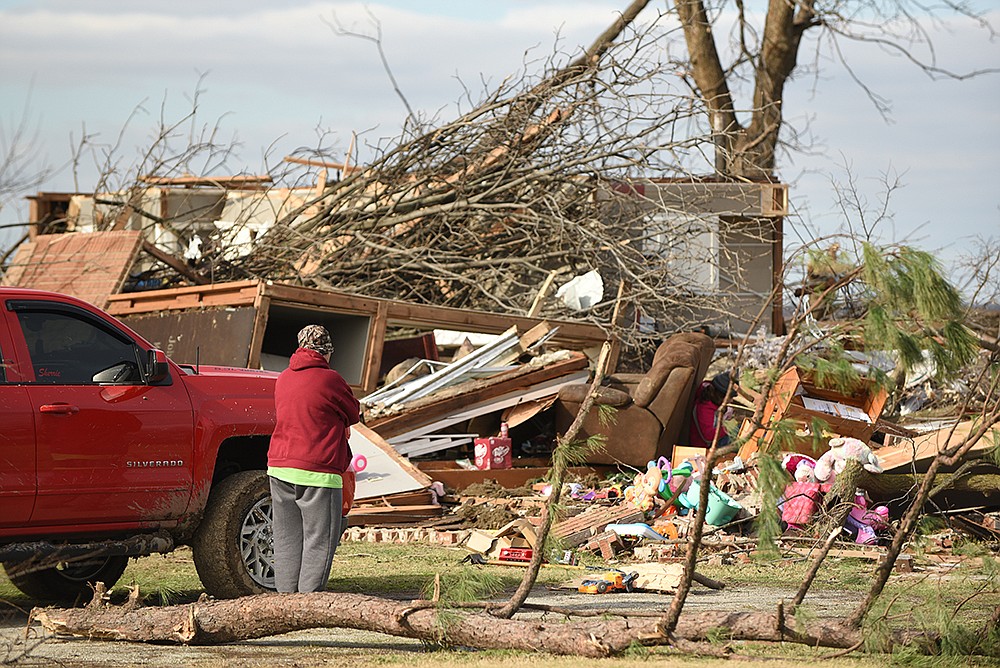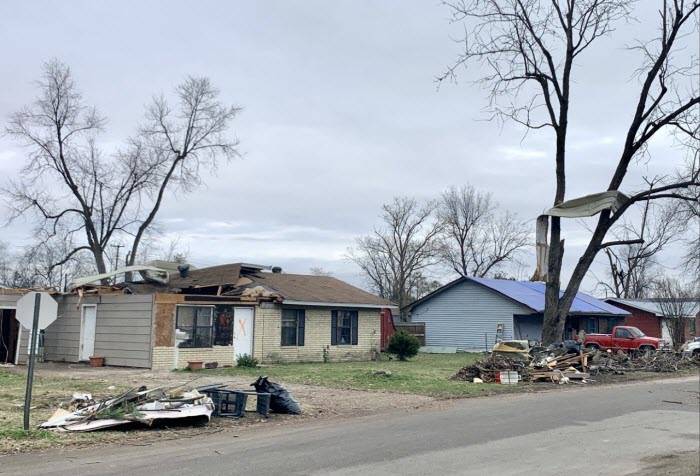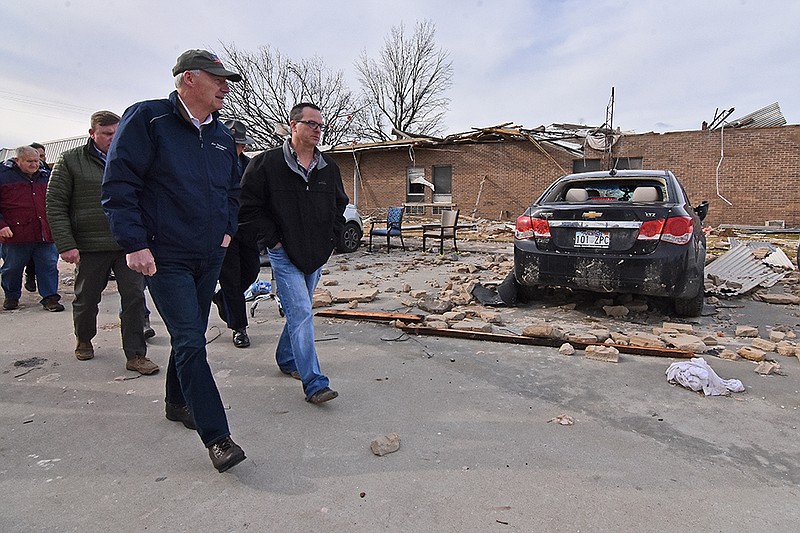By Kim Dishongh

It’s been a year and a half since a tornado hit Trumann in Poinsett County. Though it’s no longer at the forefront of many people’s thoughts, the destruction is still being repaired.
Terah Redman led volunteer efforts to help those directly affected by the storm immediately after its impact in December 2021, and she has continued to work on long-term recovery in that area.
Right after the storm, people needed food, shelter and water, and then they needed diapers and formula and hygiene items and other basic necessities. People in Trumann and beyond stepped up to help, and Redman guided their efforts.
The community’s needs have since evolved. Several residents in the hardest hit parts of town were living paycheck-to-paycheck before the storm, and many were uninsured or underinsured. For some, damages still have not been repaired, and for others loss of property has led to or compounded struggles in other parts of life. In comes the long-term recovery group.

“The quickest way I know how to explain it is that it’s a group of funders that come to the table with money, materials or manpower, and they’re able to offer what’s needed,” Redman said of the group she assembled.
A caseworker evaluates requests for assistance and, when appropriate, presents them to the group. Group members — representatives from the Salvation Army, the Red Cross, the Ministerial Alliance and others — meet monthly to consider which should take the lead.
“There are different rules for different funders,” said Redman. “They have different roles so we just figure out who can do what to help. It’s just everybody at the table. They step up and say, ‘Hey, I’ll do this,’ or ‘I can do that.’” Help might come in the form of a gift card for groceries, a mortgage payment or money for repairs. It might address an insurance shortfall that stipulates a roof cannot be replaced unless a homeowner can come up with another $10,000, or benefit someone who was able to get their roof fixed but cannot afford to replace furniture ruined while the roof was gone. Some cases are the result of a snowball effect, like a storm victim whose car was destroyed, leaving them with no transportation to work; not working meant they couldn’t pay rent, which puts them at risk of being homeless.
“Some of them were coming in on the back end, where they’re finally caught up, but they depleted everything they had,” Redman said. “So to help those people we’ll pay eight months of the mortgage and for those eight months they can save money to pay back what they borrowed from people.”
Some of the people asking for help now have needed it all along.
“A barrier is trust,” said Redman. “A lot of people don’t want to ask for help.”
The clock is ticking on available resources, added Redman. Her position, paid through a grant from Centers for Disaster Philanthropy, ends in December 2023.
“It’s word of mouth,” she said. “They’ll see us putting a roof on someone’s house, and they’ll come by and say, ‘What’s this?’ And then they find out they can get the help they need, too.”

